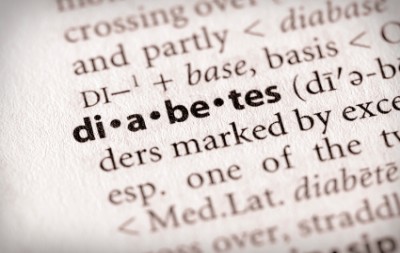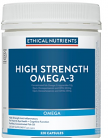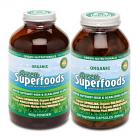Diabetes Mellitus
Diabetes Mellitus is a condition in which there are excessively high levels of glucose (sugar) in the blood either due to an inability of the body to produce insulin (Type 1) or an inability of the cells to properly utilise the insulin because they have built up a resistance to it (Type 2). Insulin is a hormone produced by the pancreas which allows glucose into cells to be used for energy and storage. Diabetes is the most common endocrine (hormonal) disease around the world, and it affects both genders across all races, ethnic backgrounds and income levels. Type 1 Diabetes typically begins under the age of 40, usually in children and adolescents, whilst Type 2 has typically occurred in adults (although it is now found commonly in children as rates of obesity increase). Gestational diabetes is a form of the condition that occurs in around 1% of pregnant women and typically gets better after they give birth.
In type 1 Diabetes, high blood sugar levels may be deadly as the body turns to fat for fuel, creating ketone bodies in the process, and leading to a state known as ketoacidosis. Symptoms of Type 1 Diabetes may be of sudden onset and include being very thirsty, passing a lot of urine, fatigue and lethargy, increased hunger, slow healing cuts, itching and skin infections, blurred vision, weight loss, mood swings, dizziness, and leg cramps. This type of Diabetes has genetic causes and is not lifestyle-induced.
Type 2 Diabetes develops more slowly, as chronically high levels of insulin in the blood cause cells to become less and less responsive to this hormone, and/or the pancreas cannot produce enough to keep up with the amount of sugar entering the blood. 85 – 90% of people with diabetes have this form of the condition. Whilst there are genetic links, the most important contributing factors in its development are lifestyle factors. These include obesity (especially around the waist), lack of exercise, high blood pressure and poor diet. Certain ethnic and cultural backgrounds, including Indigenous Australian, Torres Strait Islander, Pacific Island and Indian backgrounds place people at a greater risk. Symptoms are similar to Type 1 diabetes, except that there is a tendency to put on more weight, rather than lose it. Also symptoms develop slowly, and so may go unnoticed.
Long term complications of high blood sugar include damage to eyes, nerves and blood vessels, potentially resulting in conditions including cardiovascular disease, blindness, kidney failure, loss of feeling in the limbs and necrotic abscess formation.
Treatments.
There are important diet and lifestyle changes that you can make to manage both types of diabetes. It is important to talk to a health professional, such as a Naturopath, Nutritionist, Dietician and/or GP about these.
Many natural remedies may also be useful, especially in Type 2 Diabetes. Chromium is a mineral which helps glucose to enter the cells, and Diabetics generally have a higher need for this nutrient than others. In scientific studies, those supplemented with Chromium demonstrated better blood sugar control , lower medication needs, and beneficial changes in their cholesterol levels. Magnesium, Alpha Lipoic acid and Zinc are also important in helping to lower blood sugar levels. Herbs of Gold Glucoplex and Herbs of Gold Muscle Resuscitation contain good dosages of these nutrients, as well as herbs and B vitamins, which your body needs to transform glucose into energy. Vitamin E is an antioxidant that may helping to prevent many of the complications of Diabetes - it is useful to take a supplement such as Thompson's Natural Vitamin E with Selenium regularly to help protect the blood vessels. It has also been shown to improve kidney function in Diabetics, and helps to promote heart health. CoQ10 (Nutra Life CoQ Plus Hawthorn) and Fish oils (Herbs of Gold Omega 3 Concentrate, Ethical Nutrients Hi-Strength Liquid Fish Oil) have cardiovascular benefits and Alpha-Lipoic acid has been studied for its protective effects on the nerves.
Herbs are also of great use in this condition. Fenugreek seeds, Cinnamon, Gymnema (an Ayurvedic herb), Andrographis, Korean and American Ginseng have all been shown to help control the levels of sugar in the blood. A great combination of these is Herbs of Gold Glucoplex and Nature's Sunshine Fenugreek. Nutra Life Bilberry 10,000 plus Lutein and Nutra Life Ginkgo 7500 plus may help to reduce diabetic complications by protecting the blood vessels. In addition, Fringe Tree is a traditional tonic for the pancreas (the insulin producing organ).
Updates - 24 October 2014
Meerz, D & Ahmed, N (2010), ‘Can Vitamin D be a potential treatment for Type 2 diabetes mellitus’, Diabetes and Metabolic Syndrome: Clinical Research and Reviews, Volume 4, Issue 4, October-December 2010, pp: 245-248.
After cancer, Diabetes is the most widespread disease around the globe. Clearly this increasing problem needs some new solutions. Increasing research is beginning to highlight the role of Vitamin D in the progress of the condition.
Low Vitamin D levels reduce insulin secretion and thus result in high blood sugar levels. Also, insulin secretion and sensitivity are affected by the level of Calcium in the body and this is regulated (in part) by Vitamin D levels. In many studies, those with adequate levels of this sunshine vitamin have better control of their blood sugar.
Given that some sources have been telling us that we have an ‘epidemic’ of Vitamin D deficiency in this country, and that our Diabetes rates keep increasing, is there a need for us to all get some more time out in the sun? What a simple, modifiable risk factor for Type 2 Diabetes!
Vive Health Naturopaths recommend the following products for Diabetes:
NB. Please be aware that many of these may affect your blood sugar levels and thus it is wise to monitor medications closely.
| Products | Suggested Dosage |
|---|---|
| 1. Herbs of Gold Glucoplex (60 Caps) | 1 tb x 3 daily (with meals). |
| 2. Herbs of Gold Muscle Resuscitation (150g, 300g) | 1.5 tsp in 200ml water x 1 daily. |
|
3. Ethical Nutrients Hi-Strength Liquid Fish Oil (170ml, 280ml) OR |
1 tps x 2 daily. |
| 3. Herbs of Gold Omega 3 Concentrate (100 Caps, 200 Caps) | 3 caps x 2 daily. |
| 4. Nutra Life CoQ Plus Hawthorn (30 Caps, 60 Caps) | 3 cap x 1-2 daily. |
| 6. Ethical Nutrients Chromium Sugar Balance (60 Caps) | 1 cap x 3 (with meals). |
| 7. Nutra Life Ginkgo 7500 plus (30 Caps, 60 Caps, 120 Caps) | 1 cap daily. |
| 8. Nutra Life Bilberry 10,000 plus Lutein (30 Tabs) | 1 tb daily (with food). |
| 10. Thompson's Natural Vitamin E with Selenium (100 Caps) | 1 cap with each meal. |
| 11. Nature's Sunshine Fenugreek (100 Caps) | 1 cap three times a day (with meals). |
NOTE: Consideration should always be given to individual requirements. Please consider seeing a qualified practitioner before commencing a new treatment protocol or when combining supplements with pharmaceutical medication.
For more information on Diabetes or to ask a Qualified Naturopath a question Click Here.
References:
Diabetes Australia Website http://www.diabetesaustralia.com.au/
Unity Health, IM Gateway accessed online November 3 2010.










